How Can NLP Improve Multifamily Experiences?

Hello and welcome to Day 6 of "21 Days of AI"!
Today, we're diving into the world of Natural Language Processing, or NLP—the brain behind how machines understand human chatter.
What’s on the menu?
- How has NLP changed conversations between humans and machines?
- How is NLP transforming conversations in the Multifamily industry?
So, pour yourself a cup of your favorite brew, and let's get conversational with AI!
Before Natural Language Processing (NLP), interacting with computers was like speaking a foreign language only programmers could understand. Programmers acted as the vital link between humans and machines, creating tools like menus, forms, and buttons to help people accomplish tasks using non-natural interfaces.
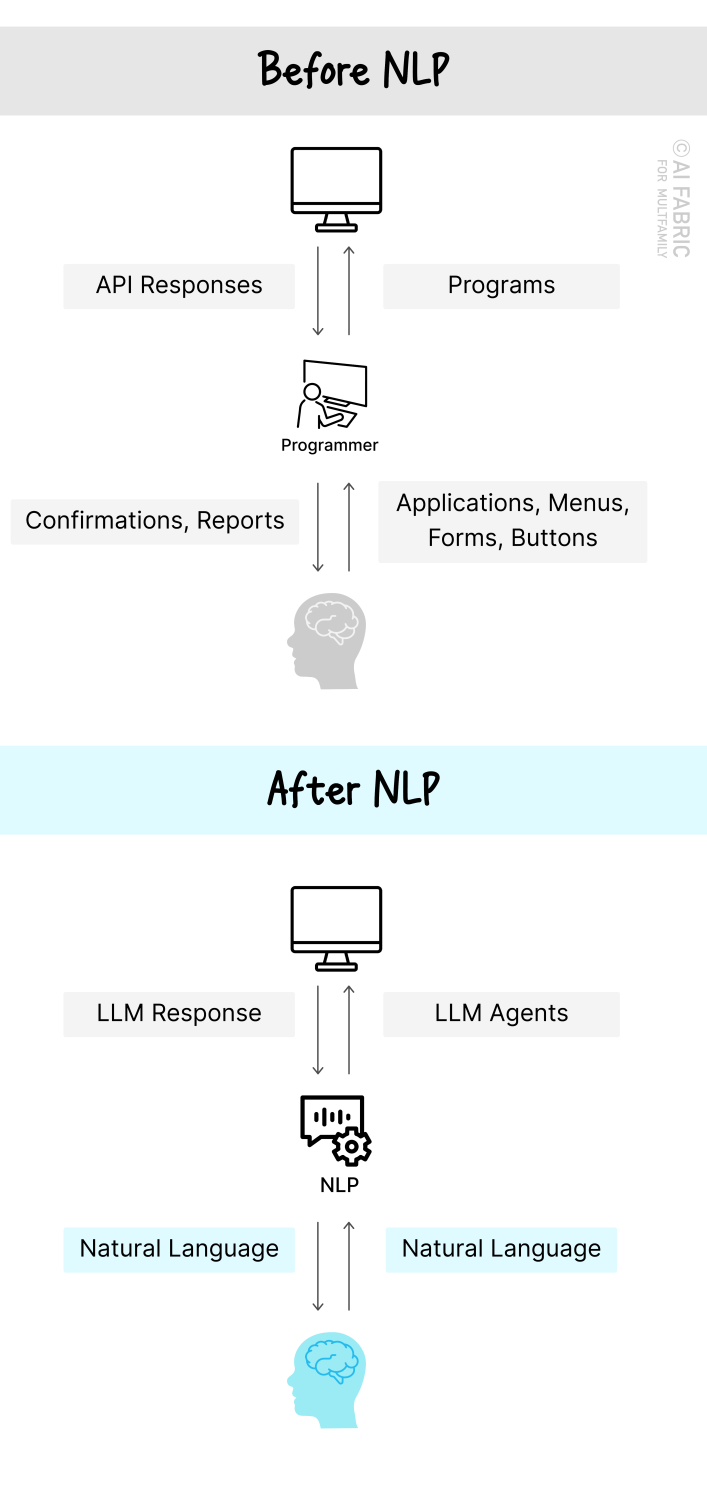
Now, NLP has changed that. It has removed the need for intermediaries.
NLP can translate our everyday language into computer language and then convert responses back from computer language into words we can easily understand. This change has made talking to computers more like having a conversation with another person.
NLP not only understands words; it also picks up on the context, sentiment, and intent behind what we say. This makes using technology easier and more natural for everyone.
Some of the most sophisticated applications of NLP are ChatGPT, Gemini, and Claude, which use natural language processing to interact with users. These systems can understand and respond to a wide range of topics and queries in a conversational manner, much like human interaction.
Without NLP vs. With NLP: Multifamily Chatbots Explained
The effectiveness of multifamily chatbots greatly depends on whether they use Natural Language Processing (NLP). Here's a simple example of how a chatbot operates with and without NLP in responding to a resident's question:
Chatbot Without NLP:
Suppose a resident asks, "I like to host small parties of 5-10 people. What do you offer?" A system lacking NLP might simply scan for keywords like 'parties' or 'people' and fail to grasp the question's broader context, likely responding with, "I don’t understand your request. Let me connect you with a customer service agent."
Chatbot With NLP:
Now, when the same question is posed, the NLP-enabled chatbot interprets the entire inquiry within its context.
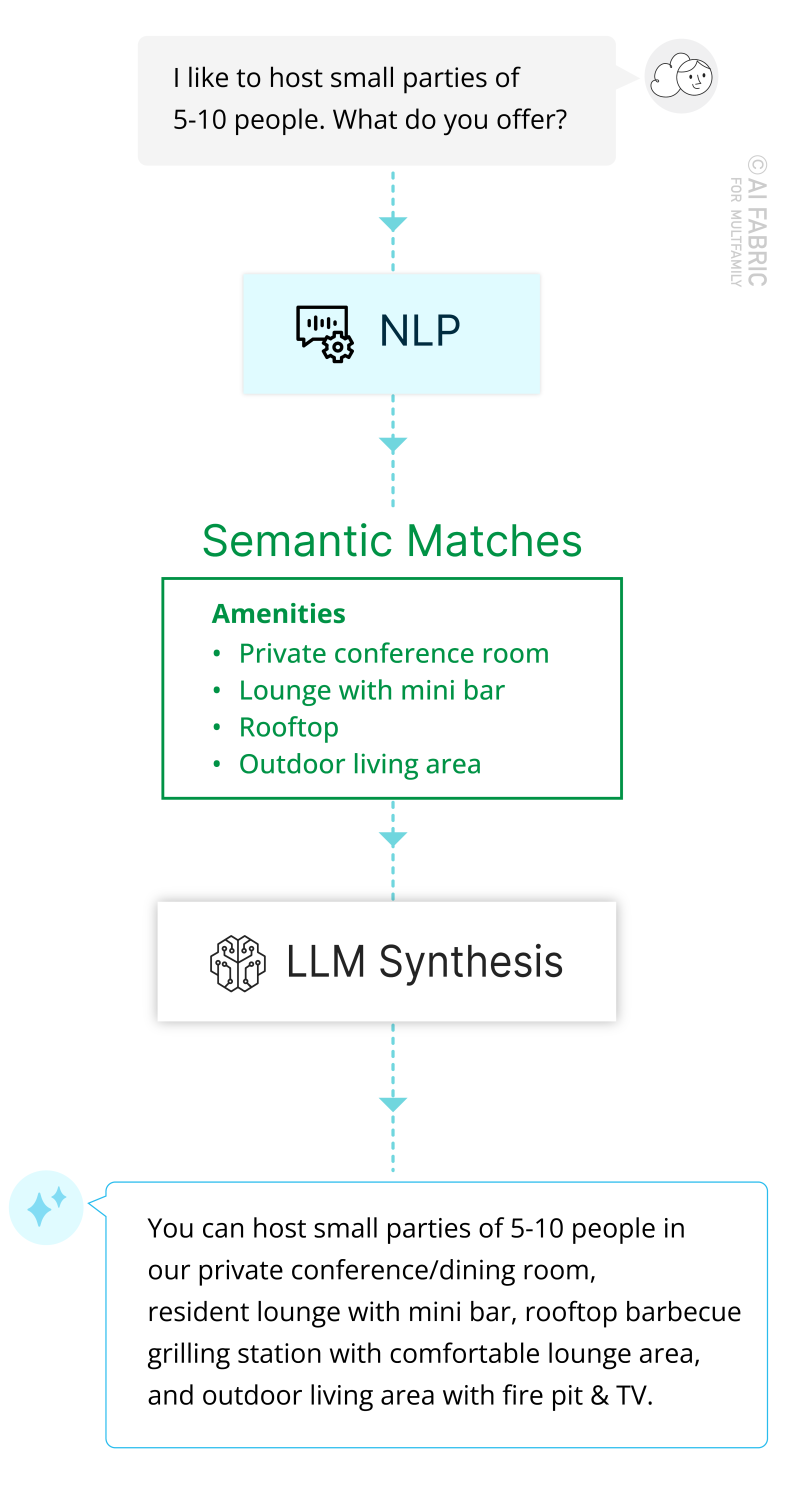
It understands 'small parties' as a social event and correlates it to related amenities such as grills, dining rooms, and game rooms. The chatbot can then respond effectively, "You can host small parties in our private dining room, resident lounge with a mini bar, rooftop barbecue area, or our outdoor living space with a fire pit & TV."
This comparison illustrates that NLP substantially improves the capabilities of chat, mail, and voice assistants, enabling them to address a wide range of queries with enhanced communication efficiency and overall experience for prospects and residents.
And that’s a wrap on Day 6 of "21 Days of AI!"
Thank you for reading, and see you in the next newsletter.
Feel free to let us know what AI topics you're curious about or want to understand better!

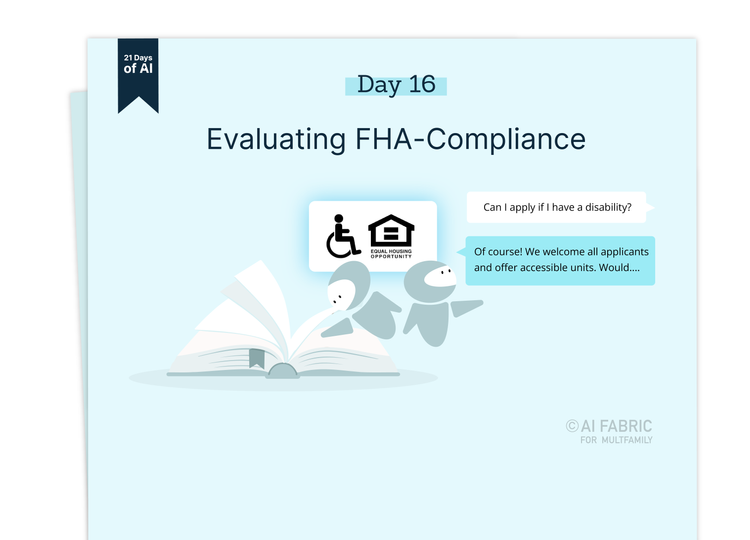
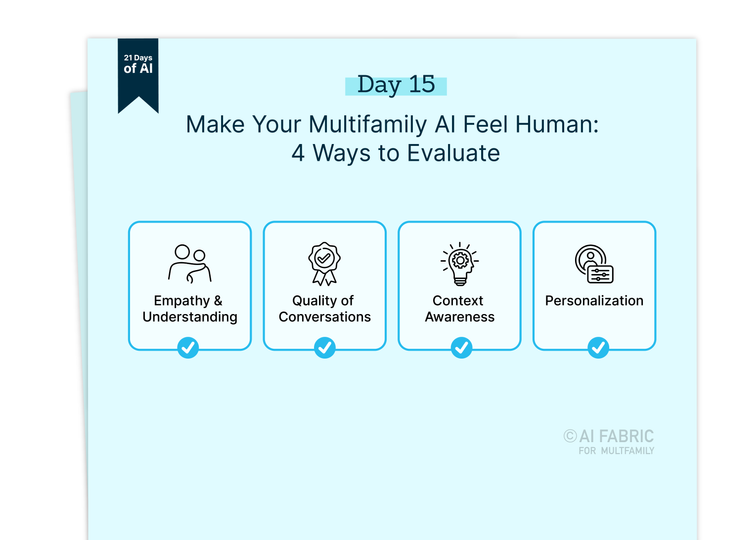
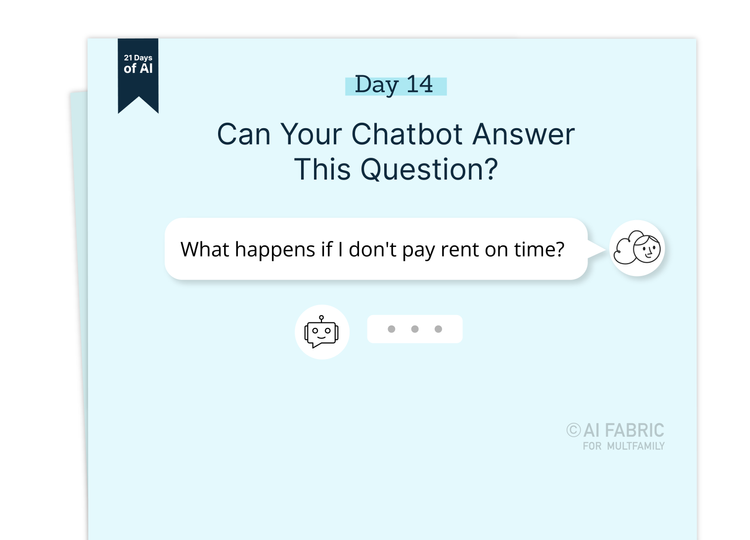
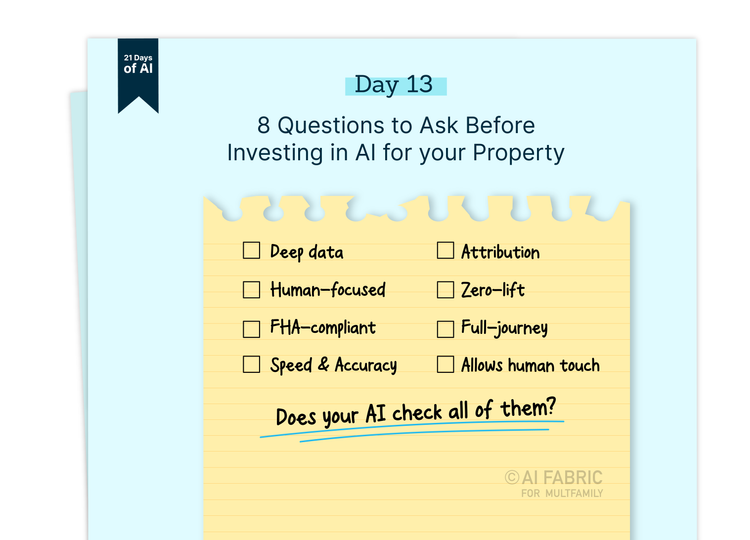
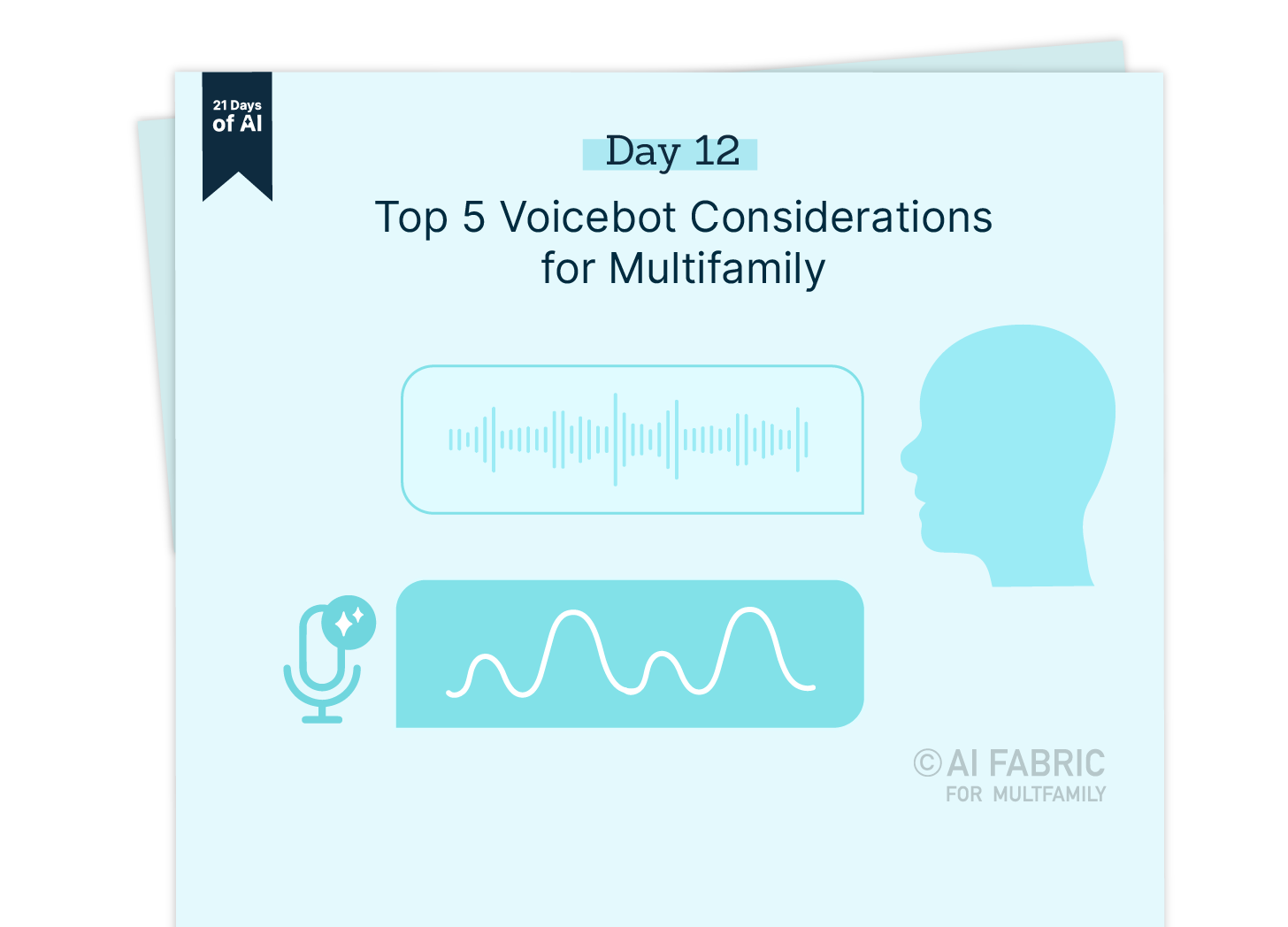
Member discussion